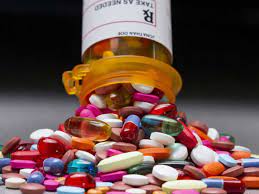Medicines play an indispensable role in the improvement of health, preservation of lives, enhancement of public welfare, promotion of trust and participation in healthcare services.
The availability, pricing and affordability of medicines are particularly important, therefore, as they significantly affect the survival rate of populations from diseases.
It is, therefore, with little or no wonder that the Coordinating Minister of Health and Social Welfare Dr Ali Pate said that President Bola Ahmed Tinubu would soon issue an executive order to control pharmaceutical pricing and lower the cost of medications in the country.
The minister spoke against the fact of rising costs of drugs which has put many drugs out of reach for many Nigerians.
He said the executive order would enable local drug manufacturers to thrive and ensure fair pricing of essential medicines.
Pate said that the said the decision follows the exit of major multinational pharmaceutical companies from Nigeria.
He said: “Consistent with the President’s Renewed Hope Agenda, which puts the human capital, health and social welfare of Nigerians at the centre, today at the Federal Executive Council, Mr President took three far-reaching decisions relating to the health sector.
“The first is on the rising cost of pharmaceuticals, the hike in prices that we have in the pharmaceutical, which is going beyond the reach of many Nigerians, life-saving commodities, devices like syringes and needles and the exit of major companies from our market.
He said that the decisions also include the regulation of the sector to protect the health and well-being of humans and guarantee them access to medicines.
Access to medicines encompasses the constant availability and affordability of essential medicines at either public or private health facilities that are within a one-hour walking distance from the homes of the population.
Access to medicine constitutes a core component of the right to health.
Sadly, with over 115 registered pharmaceutical manufacturers, Nigeria still depends on other countries for the supply of active pharmaceutical ingredients and excipients. Significant attention has not been paid to the local production of raw materials, pharmaceutical dosage formulations, or processing equipment, which has resulted in a decline in the country’s pharmaceutical manufacturing capacity.
Owing to the overall importance of the pharmaceutical industry, it is, therefore, essential to pay close attention to developmental issues affecting this sector.
Because of its importance in the overall welfare of the economy, it has become essential to pay close attention to developmental issues affecting the pharmaceutical sector. The recent COVID-19 pandemic and the exit of multinational companies from Nigeria uncovered several shortcomings and lapses affecting Nigeria’s pharmaceutical manufacturing capacity and necessitated the need for local solutions to solve local problems.
The pandemic and now the exit of some companies resulted in severe drug shortages and medicines insecurity in the country as drug importation was significantly reduced. It also amplified the urgent need to boost local pharmaceutical manufacturing capacity.
However, it should be noted that the pharmaceutical sector cannot survive in a country without an enabling environment. Strengthening the country’s local pharmaceutical manufacturing capacity will take decades of investment, dedication, advocacy and coordinated efforts by the government and private stakeholders.
To strengthen the Nigerian pharmaceutical manufacturing capacity, the government, regulators, policymakers, pharmaceutical companies and other relevant stakeholders must address the political, socio-economic, financial and regulatory barriers such as high taxes, high energy costs, poor infrastructure, insecurity, poor funding and unfavourable policy changes.




